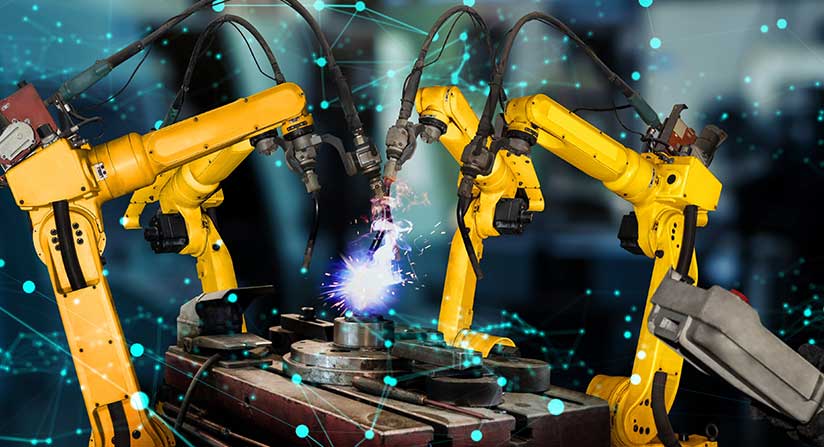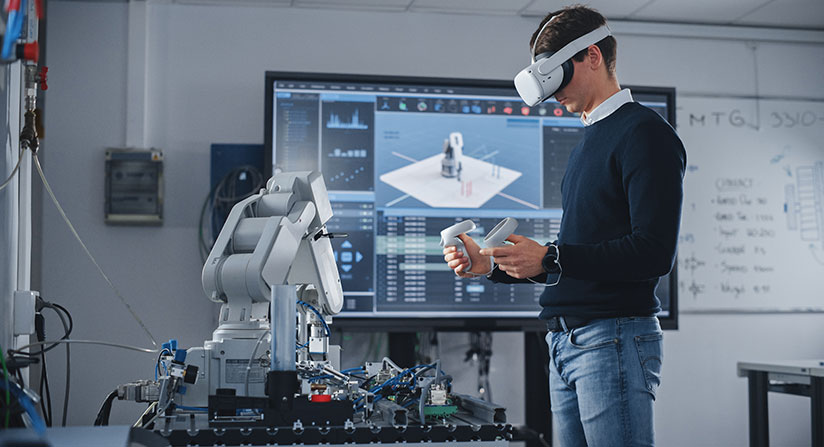Manufacturers need specific functionality to run their businesses effectively. When looking for a solution, you need to find ERP software with features that will fully optimize your business to compete and grow. Let’s examine what ERP functionality is critical for discrete manufacturers.
1. Inventory Management
Having the right inventory on hand to build your products is crucial. If you don’t, you could miss shipping deadlines, which would impact your customers and your reputation. At the same time, you don’t want to have too much inventory, as that results in carrying costs and waste.
A good ERP inventory management module will let you know the level of your safety stock, re-order levels, and cycle counts in real time, and it will help you plan for demand. It should track the status and location of every inventory item. Inventory management will also bring any potential shortages to your attention so you can correct them before they occur. Manufacturers rely on their inventory to build their products, so they need to have the correct amounts on hand at all times.
2. Supply Chain Management
Manufacturers must effectively manage their supply chain in order to have the available inventory needed for production. Today’s supply chain is very complex. A supply chain system, integrated with other modules in an ERP solution, helps mitigate their complexity. It determines what materials are needed and when you need them. It allows you to communicate with suppliers in real time about capacity, forecasts, and orders. Suppliers can log into a portal to see purchase orders at any time, and the supply chain module can monitor how suppliers are performing.
A supply chain management system in manufacturing ERP can provide alerts when real or potential disruptions occur or opportunities are available. It can help ensure cross-border trade compliance for any shipments coming from outside the country. Managers can also take a look at the effectiveness of the supply chain with reports on key performance indicators.
3. Material Requirements Planning (MRP)
To determine how much inventory is needed for production, a material requirements planning module can help. It can consolidate demand, scheduling, and inventory requirements. It uses sales orders and patterns to help forecast needed inventory. It plans for the needed materials, resources, and capacity to complete each step in the production process. It takes into account the predefined operational capacity of resources to help evenly distribute the workload.
4. Advanced Planning & Scheduling
The advanced planning & scheduling module simulates your environment by considering your resource capacity. It can analyze ‘what if’ scenarios to create an optimized production plan, and it uses advanced algorithms to balance demand and capacity. You can create built-in rules that it will use when scheduling orders and planning can be done in a finite or infinite capacity mode. Planning times can be periods of days, weeks, months, or a combination.
Advanced planning & scheduling lets manufacturers click and drag to move the production of an item from one planning period to another. You can manually interact with the schedule to make changes and then push out updates to the production staff. It allows you to take into account business objectives, forecasts, demand, and capacity constraints to know how much product to make, where and when to make it, and what materials and resources are required for an optimized production schedule.
5. Shop Floor Execution
The key area for a manufacturing company is its shop floor. It must run smoothly to ensure products are delivered on time. Resources must be fully utilized to avoid unnecessary costs. Shop floor execution in manufacturing ERP keeps production streamlined by providing process instructions to workers through documents, drawings, and videos. It lets workers log in and manage tasks with touch screens.
Shop floor execution lets supervisors see the status of production from anywhere using a mobile device. When operators log in, they see all their assigned tasks and they can report on the status of jobs as needed. The shop floor execution module allows managers to assign workers to specific machines that they are trained on without having to go to the plant floor. They can also determine the productivity of each shop floor worker and see how long it takes them to complete a task.
A shop floor execution system helps machine operators perform their tasks correctly and can identify genealogy across a product’s lifecycle. If there are any problems, it can track the source of defective items by machine and worker.
6. Quality Management
Quality is critical for manufacturers to keep customer satisfaction levels high. Manufacturers in medical device or defense industries, have to meet stricter standards and quality becomes even more critical. A quality management system in ERP helps manufacturers identify and resolve issues proactively across receiving, production, and shipping.
An ERP quality management system lets you see in real-time how many items were made and if any were faulty. Since it keeps track of all raw materials, work in progress, and finished goods, it can help expedite the return of supplies or negotiate prices. A good ERP quality management system will execute inspection plans, checklists, and quality control tests against products, people, and equipment.
Vendor performance for quality can be evaluated and ranked using key performance indicators. A quality management system in ERP will document internal controls, security, and quality measures as well as searches and retrievals for audits or inspections. It will also provide multi-level notifications and historical tags with automated changes to policies, procedures, and more. It also will provide user-friendly, pre-built reports to look at vendor, production, and stability analytics.
7. Job Costing
An ERP system provides data from modules such as inventory management, shop floor execution, sales, and purchasing to determine accurate job costs. The latest information can be obtained in real-time to calculate the cost of each job. An ERP system lets manufacturers easily examine estimated vs. actual costs by personnel, department, work center, operation type, material type, outside service/operations, work orders, and more. Differences between standard and actual costs can also be analyzed by date range, work order, sales order, lot number, etc. Even costs for work in progress can be examined as the information is updated as the job is processed.
8. Analytics and Business Intelligence
Since ERP provides data in real-time it is easy to make knowledge-based decisions in any area of business. Role-based dashboards show user-defined KPIs so users can have up-to-date information on what’s important to them. Users can drill down into information to get a more granular view of what is happening in a particular area. Pre-built reports can be used or they are also easy to customize to specific needs. With ERP business intelligence you can always know where revenue, costs, and cash flow stand.
Analytics and business intelligence in ERP reveal patterns that can lead to actionable data. They can provide multiple perspectives, and can export to Excel. Manufacturers can improve their cash balance visibility and sales performance by using ERP analytics. Its business intelligence can also forecast future outcomes and discover opportunities, along with areas needing improvement, to guide strategic business plans.
9. Production Management
The production management module in ERP provides a Bill of Materials (BOM) feature that builds a complete list of materials and resources needed to complete a job. Performance and the status of jobs, workers, and machines can be monitored by work centers. Requests can be made automatically to move materials from one location to another while keeping track of the location and use of inventory.
The module will also manage the purchase of subcontracted raw materials or services, including automated quality control checks. It will also identify and track direct and indirect costs associated with material resources and labor. Production management lets you set up tooling specifications for machines to monitor performance, prevent out-of-spec production runs, and maximize output capacity.
In ERP production management, BOM revisions can be managed, or alternate ones created, to ensure the updated documents are associated with the correct production run. Alternate BOMs can be used to create engineering change orders which automatically update changes to components, assemblies, documents, and specifications.
Wrap Up
Remember that not all ERP system functionality is the same. It’s important to know what your goals are before searching for features of an ERP. Those goals will help you determine what you’ll need. ERP functionality can play a significant role in improving business performance. The key is to find a good ERP partner to work with and a modern system that will meet your needs both now and in the future.
Follow Us





